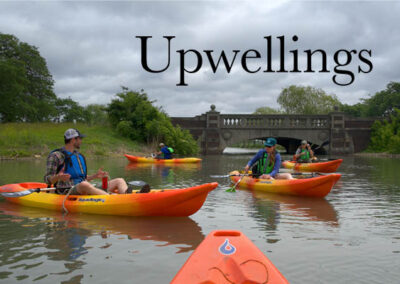 We are pleased to announce that Emily Shaw, a PhD candidate at Michigan Technological University, has been named a finalist for the 2023 Sea Grant John A. Knauss Marine Policy Fellowship. She will officially become a fellow after receiving her host office placement this fall.
We are pleased to announce that Emily Shaw, a PhD candidate at Michigan Technological University, has been named a finalist for the 2023 Sea Grant John A. Knauss Marine Policy Fellowship. She will officially become a fellow after receiving her host office placement this fall.
The Knauss program matches graduate students and recent graduates with host agencies in Washington, D.C., such as congressional offices, the National Marine Fisheries Service, or U.S. Fish and Wildlife Service. For one year, fellows work on a range of policy and management projects related to ocean, coastal, and Great Lakes resources. Fellows can be placed in the federal legislative or executive branches.
Emily is currently finishing her PhD program through the Great Lakes Research Center at the MTU Department of Civil, Environmental, and Geospatial Engineering in Houghton. Her dissertation focuses on toxins that affect fish populations and the humans that interact with them.
Early on in her studies, Emily established a research partnership with the Keweenaw Bay Indian Community (KBIC) Lake Superior Band of Chippewa Indians to ensure her work was relevant to — and could meet specific needs of — a local indigenous fishing community. Working with KBIC staff, Emily has sought an in-depth understanding of the community’s perspectives and experience in building equitable research relationships.
Emily now identifies as an indigenist researcher, which she describes as “someone whose research is accountable to Indigenous philosophies and worldviews.” She seeks to honor the relationships she has built with the Keweenaw Bay Indian Community and the land where she lives and works.
Emily joins 85 other Knauss finalists in the 2023 class. Knauss finalists are chosen through a competitive process that includes comprehensive review at both the state Sea Grant program and national levels. Students that are enrolled in or have recently completed master’s, Juris Doctor (J.D.), and Doctor of Philosophy (Ph.D.) programs with a focus and/or interest in marine and coastal science, policy or management apply to one of the 34 Sea Grant programs. If applicants are successful at the state program level, their applications are then reviewed by a national panel of experts. The members of the incoming class represent 29 of the 34 Sea Grant programs and have completed coursework and research in a range of fields, such as biology, chemistry, ecology, engineering, environmental science and management, law, marine and coastal sciences and policy, and oceanography.
This fall, the finalists will participate in a virtual placement week to get to know each other and interview with potential host offices. Following placement, they will begin their fellowships in February 2023.
“Congratulations to the 2023 finalists on being selected for this highly competitive and prestigious fellowship,” said NOAA Administrator Rick Spinrad. “Throughout my career at NOAA including my role as administrator, I’ve met many Knauss fellows and have watched them grow into leaders in marine and Great Lakes policy, research, and conservation. I’m very much looking forward to meeting and working with many of you soon.”
Follow Michigan Sea Grant on social media and subscribe to our Upwellings newsletter to read upcoming blog posts from Emily about her career interests and fellowship experience.


